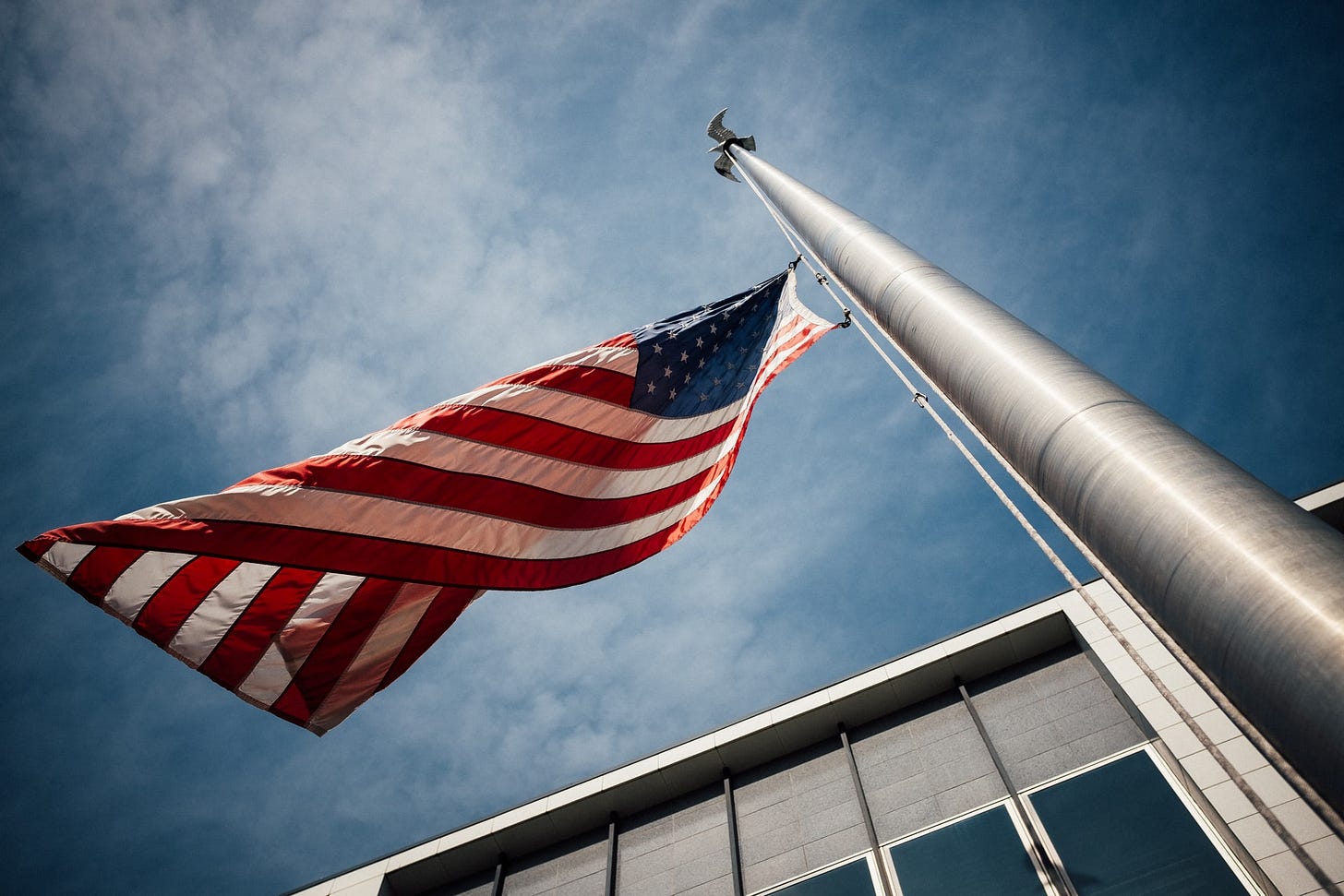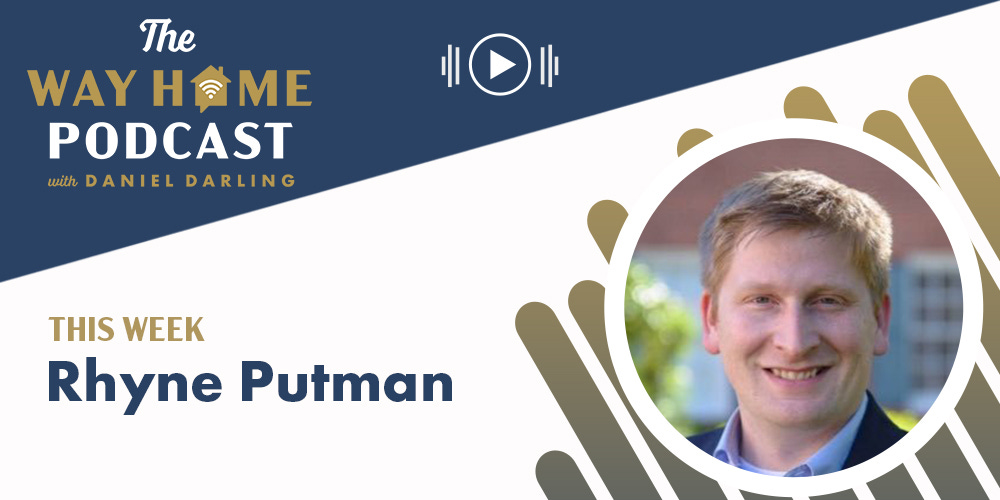
In the last month, I’ve had two different, but very similar conversations, about 2020 and the coming Presidential election. Each told me that if their preferred candidate didn’t win, “we are doomed.” What’s interesting is one conversation was with a Trump supporter and one was with a Biden supporter. I found myself having the same pushback: I get your concerns, but I want to assure you that we will be okay.
I want to head off any criticism here by saying that I share some of the fears that my friends are feeling about where this country is. The global pandemic with its associated shutdowns and measures, deep racial tensions, and now a looming epic Supreme Court nomination fight are just a few of the other many things that have many of us worried. This doesn’t even take into account the natural disasters that have hit us this year: hurricanes, wildfires, and tornadoes. A lot of people are suffering. A lot of people are hurting. A lot of people are broken.
What’s more, there is a pervasive sense among many that this experiment in human government we call the United States is showing serious signs of wear. Can we hold it together? Will we make it to our 250th birthday? My good friend David French, a thoughtful and provocative thinker whom you should always stop and read, has a new book out illuminating the various ways our union could crack and solutions he feel will prevent that.
David French and others have reasons to be nervous. We are a divided nation, whose worst impulses are encouraged by social media algorithms that reward incivility and a news media model that relies on division to advance the bottom line. What’s more, as French and others have pointed out, we are further and further sorted into ideological bubbles that keep us from interacting with those who think differently.
And yet, I’m hopeful. I’m first hopeful because I believe that while we are not in a good place, America has weathered difficult times, some many worse than our current moment. Perhaps its my bias toward history, but let’s consider we endured a Civil War, we endured the tumult of the 1960’s, we fought of the fascists in World War II and endured a Great Depression in the first part of the last century. I think America will get through this season.
But that’s not even where my hope lies. As much as I love our country, I know this, like every other human government in world history, does eventually have an expiration date. My faith is in that city, “whose builder and maker is God” (Hebrews 11:10). At times secular or non-religious folks have a hard time how Christians can believe in the Kingdom of God. Sometimes it produces a fear that we want to secretly establish a theocracy here in the United States or create a version of the Handmaid’s Tale. But looking forward to the time when Jesus fully consummates his kingdom helps us see things in the present with startling clarity. It motivates us to join God in his mission to reconcile image-bearers to their creator though the death and resurrection of Christ and to embody the kingdom by loving our neighbors. A kingdom focus allows me to see politics for what it is: a useful vehicle for helping my neighbors live in a more just world, to champion human dignity. It helps me reject a politics that is all-consuming and ultimate, the kind of white-knuckled fear of the next election and a unsatisfying religious expression that serves to divide us from each other. I like what C.S. Lewis says about eschatology:
“If you read history you will find that the Christians who did most for the present world were precisely those who thought most of the next. It is since Christians have largely ceased to think of the other world that they have become so ineffective in this.”
Thinking about the next world doesn’t keep us from investing in this world. It’s not a pie-in-the-sky faith without action. The Christian’s vision of what is coming is a motivator and yet it grounds us, avoiding the messianic “save-the-world” kind of activism that is exhausting and ineffective.
Christian hope is the antidote for this anxious age. This is not a Pollyanna kind of ignorance that dismisses genuine injustices and brutal suffering. We need the full range of emotion to process the troubled times, including a heavy dose of lament. But what we seem to have is something worse, a kind of thick cynicism. We need leaders willing to tell us the truth but also help us see a way forward. And we especially need Christian leaders to do this: pastors, institutional leaders, political leaders. God has not called us to live in another time and another era. He has placed us right here, right now, in 2020. And he is not wringing his hands in fear. He is not surprised by what surprises us.
Christians, you see, are made for this moment. We have a story, from Genesis to Revelation, that tells us God is on the move and active in the world, drawing history toward himself. Jesus, in 2020, still saves. And we have a theology that prepares us for suffering and uncertainty, chaos and confusion.
This doesn’t mean we shouldn’t care, shouldn’t work to elect good people to public office, shouldn’t roll up our sleeves and serve our vulnerable neighbors, shouldn’t use our voices to speak out on important issues. But, let’s not do this as those who have no hope.
This Week on The Way Home Podcast

What kinds of issues should Christians be debating and discussing? Is there a difference between biblical discernment and the kind of tabloid-style gotcha approach favored by some? Rhyne Putman, associate professor of theology at New Orleans Theological Seminary, joins me on The Way Home podcast to offer some helpful guidelines on discerning between core doctrines we should defend and secondary and tertiary matters we should hold more loosely. Putman also offers a way to have these debates in public in a civil way. His new book, When Doctrine Divides the People of God is available now.
Interesting Links
Elisabeth Dias has a fantastic profile of potential Supreme Court nominee Amy Coney Barrett in The New York Times.
The most recent Life and Books and Everything podcast with Justin Taylor, Collin Hansen, and Kevin DeYoung features a really good discussion on publishing books and articles in this digital age.
Eugene Scalia, the current Secretary of Labor and son of the late Supreme Court Justice, Antonin Scalia, has a wonderful piece about the unlikely friendship between his father and the late Supreme Court Justice, Ruth Bader Ginsburg.
Josh Moody has a good reflection on Mark Galli, former editor of CT Magazine (and a friend). Galli recently converted to Catholicism.
Lastly, Tim Keller has been writing a series of thoughtful articles on the Bible and justice. His latest on secular justice and critical theory is a must read.
What I’m Reading
I just finished Leland Ryken’s wonderful biography of J.I. Packer. It’s so good.
I also just finished Leap Over a Wall by Eugene Peterson on the life of David and One Soul At A Time: The Story of Billy Graham by Grant Wacker.
I am currently reading Hot Tub Religion by Packer, Surprised by Oxford by Carolyn Weber and Team of Five by Kate Anderson Brower.
Personal Projects
Over the last few weeks, I’ve been busy doing a ton of media for the release of A Way With Words. A few notables:
I was back on Morning Joe on MSNBC
I was on my friend Jason Romano’s Sports Spectrum podcast
I had another oped in USA Today
I also had a few other articles published:
Core Christianity has a piece on the true meaning of submission.
Christianity Today has a piece on preachers and podcasting.
I’m also working on a few other projects. Right now I’m trying to find time to record a podcast project with Crosswalk/Salem about The Characters of Christmas.
Stay in Touch
If you got this from a friend, make sure to subscribe now so you don’t miss any future content.
If you have any feedback on One Little Word, I’d love to hear from you. Connect with me on Twitter here.



